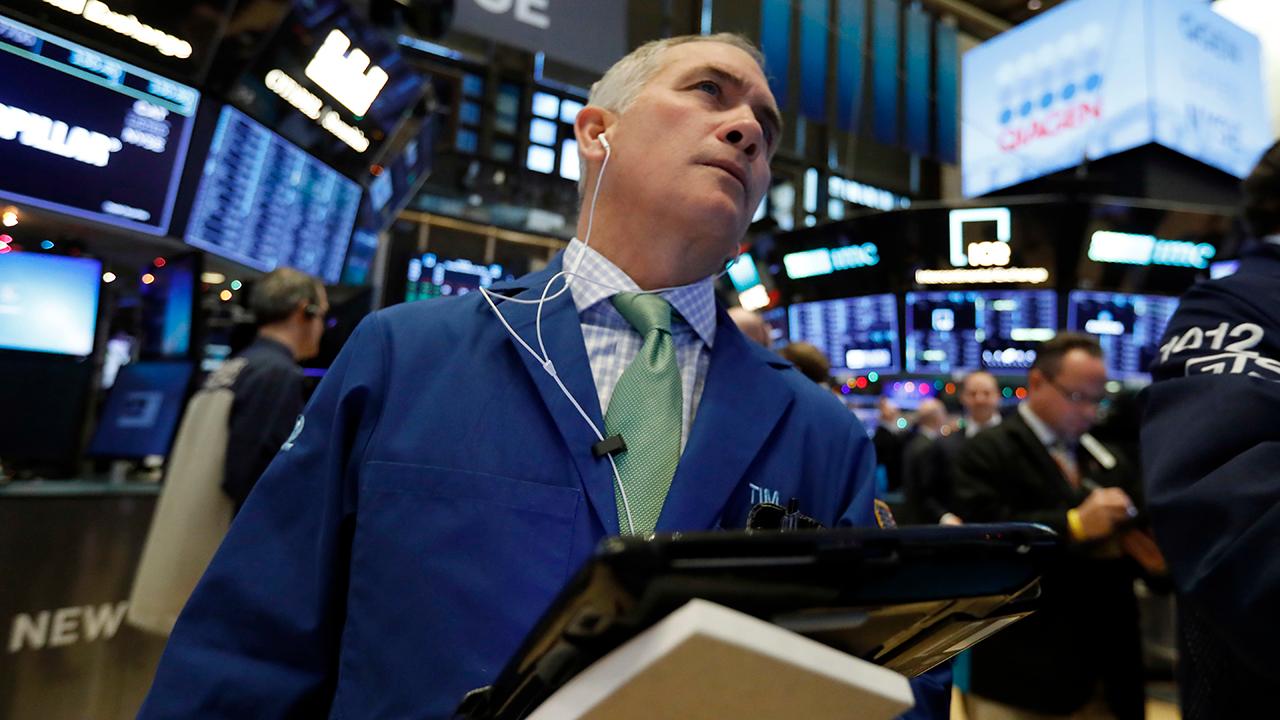China trade tensions could spell trouble for US bank earnings
A prolonged trade dispute with China could spell trouble for U.S. banks, as decreased trading volumes in securities and low-interest rates put pressure on earnings.
On Wednesday, yields on 10-year U.S. Treasury notes fell to 2.21 percent, the lowest level in 20 months. Some experts are now predicting the Federal Reserve will seek to cut interest rates in 2019, a move urged by White House allies that could further weigh on profits at large financial institutions.
The central bank has indicated it will keep rates steady, but even the status quo could be a drag on bank profitability. Most lenders earn a significant portion of their revenue from net interest margins, or the difference between how much banks charge for a loan and the amount it pays to obtain the deposits, so lower long term rates would squeeze those profits.
Wall Street trading, which can increase when the stock market is more volatile, is also fluctuating. The average daily volume dropped 14.5 percent in February year-over-year to $7 billion. In April, the average fell 12.5 percent after a 4 percent rise in March.
“Lower earnings are the likely outcome. None of this is good for share prices,” Raymond James analyst Kevin Giddis told FOX Business.
Underscoring much of the current volatility in the marketplace are the trade tensions with China. While previously some top executives dismissed the ongoing dispute as a potential headwind, industry leaders are now warning of the damage an escalation could have on the U.S. economy.
JPMorgan Chase CEO Jamie Dimon on Tuesday called trade a “real issue” that has “gone from being a skirmish to being far more important than that.”
“If this goes south in a bad way, and you have other surprises, that could be part of the thing that changes confidence, changes peoples’ willingness to invest,” he said during an investor conference.
Experts say the markets had largely baked in a successful end to the negotiations between the Trump administration and President Xi Jinping’s government. There was also hope that any deal would allow U.S. banks to begin to operate in China, a move that would open up a significant new source of revenue.
Now, after the latest round of talks failed to produce a compromise and the White House moved to increase existing tariffs on Chinese imports, investors are concerned that relations between the world’s largest economies could get worse.
Companies are analyzing whether to move supply chains out of China after the Trump administration recently took action to block Huawei, one of the country’s biggesgt technology firms from operating in the U.S. And now there are questions about whether the White House will seek to curb Chinese companies from accessing American financial markets.
Concerns also remain that China could seek to sell down some of its $1.3 trillion stake in U.S. debt, though experts have largely downplayed the likelihood of such a scenario.
“There’s almost no doubt that any sort of continued escalation or even a lack of resolution on this issue is going to have an impact,” said Randy Frederick, vice president of trading and derivatives at Charles Schwab.
| Ticker | Security | Last | Change | Change % |
|---|---|---|---|---|
| JPM | JPMORGAN CHASE & CO. | 322.09 | -0.11 | -0.03% |
| WFC | WELLS FARGO & CO. | 94.61 | +0.64 | +0.68% |
| BAC | BANK OF AMERICA CORP. | 56.41 | -0.12 | -0.21% |
| C | CITIGROUP INC. | 123.77 | +1.08 | +0.88% |
That uncertainty is weighing on the financial industry.
The main Nasdaq banking index is down as much as 8 percent this month, a larger decrease than the overall market. Driving that decline is a number of factors, including concerns over a drop in U.S. Treasury yields and lower volumes of stock-trading, among others.
Overall, the performance of bank shares is mixed year-over-year. Wells Fargo’s stock is down 16 percent, while shares of Chase and Bank of America are largely the same from a year ago. The new trade tensions are leading to some declines, however. Chase’s stock, for example, is down roughly 6 percent from the start of May.
CLICK HERE TO GET THE FOX BUSINESS APP
The decrease could be short-lived and experts still predict profits in the sector to rise in the coming quarters.
Overall, the Nasdaq index is up 8.3 percent for 2019. Indicators of U.S. consumer health remain strong, and any positive news on the China front would likely push markets back up towards record levels. The economy also remains strong, with U.S. GDP in the first quarter coming in at 3.1 percent, higher than analyst forecasts.
The Fed’s decision to raise interest rates in December helped spur an 8.7 percent rise in first-quarter revenue to $60.7 billion, according to data released on Wednesday by the Federal Deposit Insurance Corporation. On average, profits rose 6 percent to $139.3 billion.




















